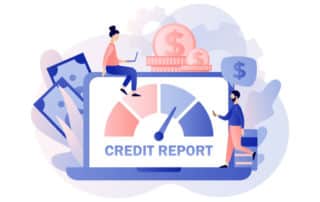
What Is a Personal Guarantee?
Obtaining credit has become much more difficult than it once was because creditors have increased their lending money requirements. To enhance the chances of acquiring a loan, many borrowers seek a guarantor. Alternatively, if you wish to receive a business loan, you might have to guarantee the business loan with your assets or personal credit. If the borrower defaults on the debt and the guarantor does not have the means to repay the debt, in some instances, the guarantee can be discharged in bankruptcy.
What Happens if a Borrower Defaults on a Guaranteed Loan?
If your loan is in default due to missed payments, the lender may request the guarantor (the person who guaranteed the loan) to make payments on the loan or to pay the entire loan off. If this happens, the guarantor will face the identical collection efforts the borrower would face under state law, such as phone calls, letters, lawsuits, and garnishments.
Remember that if the creditor requests payments from the guarantor, the borrower is still liable and is still obligated to pay the debt. The creditor can pursue the borrower for payment in full or until the debt is discharged. It is important to note that the guarantor may seek repayment from the borrower if the guarantor repays the creditor. A bankruptcy filing may be a way to prevent the guarantor from seeking reimbursement from the borrower.
Who Can Be a Guarantor?
Anyone can who wishes can extend their credit guaranty a loan for someone else. In most instances, when the borrower is young and the money is for schooling, typically a relative or a good friend is a grantor on the student loan.
Creditors often ask a business owner to personally guarantee their business loans due to the high rate at which small businesses fail. Typically, the creditor will check the guarantor’s credit, just like the borrower’s credit, to ensure sufficient income to repay the loan if the need arises.
What is the effect of a Guaranteed Loan?
By having a guarantor on a loan, the borrower can save money with a reduced interest rate because banks frequently view guaranteed loans as having a lowered chance of loss. However, some lenders often request guarantors when a borrower has poor credit or insufficient income to pay the debt. In contrast, other financial institutions may allow you to borrow additional funds when you have a guarantor.
What is the Codebtor Stay in a Florida Bankruptcy?
A codebtor is obligated to pay off a debtor’s debt; this the person who files for bankruptcy if the debtor is unable to do so. Different chapters deal with codebtors differently. In a Chapter 7 bankruptcy, a codebtor’s responsibility to pay the debt will not discharge (wipe out). The codebtor will remain liable and subject to collection efforts after the bankruptcy. By contrast, in most cases, as long as the bankruptcy court does not lift the codebtor stay (this is similar to the automatic stay), a codebtor will not be responsible for paying the debt while the debtor is in a Chapter 13 bankruptcy. Section 1301 of the bankruptcy code prevents creditors from commencing or continuing any civil action against a codebtor.
Contact a Miami Bankruptcy Attorney to discuss personal guarantee issues.
Personal guarantees in bankruptcy can become complicated when dealing with close family or friends. A Miami bankruptcy attorney can help you prepare and understand how personal guarantees may affect your family and friends who may have consigned to your financial obligations. Call 305-515-5928 today for a free no-obligation consultation.
Latest from our Blog
Consultations Available At:
Consultations Available At:



